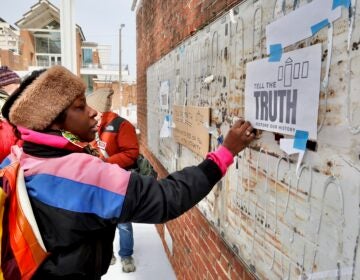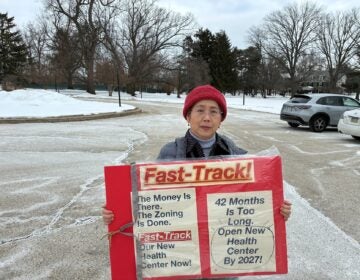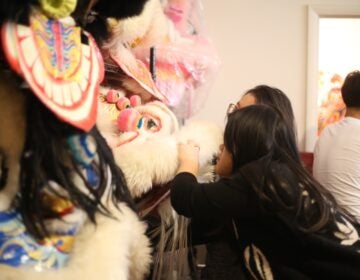G.J. Littlewood and Son, a reminder of the Manayunk mill town that was
Most people associate Manayunk with restaurants, bars and boutiques, but at one time, Manayunk was a mill town with a Main Street covered in textile mills from Leverington Avenue to well past Shurs Lane.
Streets in Roxborough and Manayunk such as Krams and Rikpa are named after mill owners. Some of these old mill buildings still stand on Main Street but only one of them, G. J. Littlewood and Son, Inc. is still in operation.
Graham Littlewood, who purchased the Schuykill Dye Works originally in East Falls and founded G.J. Littlewood and Son in 1869, eventually moved the operation into a stone building on Main Street which dates back to the early 1800s.
“We are the last mill in Manayunk” said 89-year-old Wallace Littlewood, the great grandson of Graham Littlewood and fourth-generation family owner. He continues to come to the office every day even though he is now retired. He started working at the dye factory in 1945 while in his mid 20s. His sons and nephews currently operate the plant.
A somewhat faded panoramic photograph on the wall of his office shows the many stone buildings that once housed the textile mills that lined both sides of Main Street.
Wallace remembers those mills and can still name most of them. Standing on Main Street he points out that what is now the Dwelling furniture store across the street used to be the Sykes Brothers yarn manufacturers, and the building that houses Mad River at the intersection of Main Street and Shurs Avenue was Snick/Spink manufacturers of carpet yarn. The building up the street that now houses Pampanoosic Mills used to be the Robert Crook mill where they also made carpet yarn.
Before his time, Wallace said, Graham Littlewood would carry bales of dyed fiber down to the Manayunk Canal by horse and wagon to be shipped down the Delaware River as far as Baltimore. The horses were long gone by Wallace’s time but he remembers where the stable once stood across the street. Water that was used in the dyeing process used to come from a spring up in Roxborough down to a holding pond behind the mill. They use city water now but the pond is still behind the building.
All the Manayunk mills are gone now but Littlewood continues to dye all kinds of fibers – wool, cotton, jute, hemp – for mills in New England, the Midwest and the South. A good part of its business comes from dyeing the fiber used in paint rollers. The dyes that used to come from Philadelphia now come from overseas and the fibers that came from the U.S. now come from Europe and the far East.
“Now we have to play a waiting game,” says Wallace. They do not currently have any overseas business although Wallace said they once dyed 80,000 lbs. of Orlon for Dupont to be shipped to Russia.
“We’re trying to keep it going,” said employee and family member Dave Littlewood.
As Wallace sat at his desk on a recent afternoon, pictures of Graham Littlewood and past presidents of the company, including his grandfather and father, papered the wall behind him. Wallace’s picture is not on the wall because, says Wallace, “only dead peoples’ pictures go up there.”
Where Littlewood once had 50 employees, 20 now work there. The textile mills that once covered Main Street vanished long ago but the lone remnant, G.J. Littlewood and Son, a reminder of Manayunk’s past, still remains.
WHYY is your source for fact-based, in-depth journalism and information. As a nonprofit organization, we rely on financial support from readers like you. Please give today.




